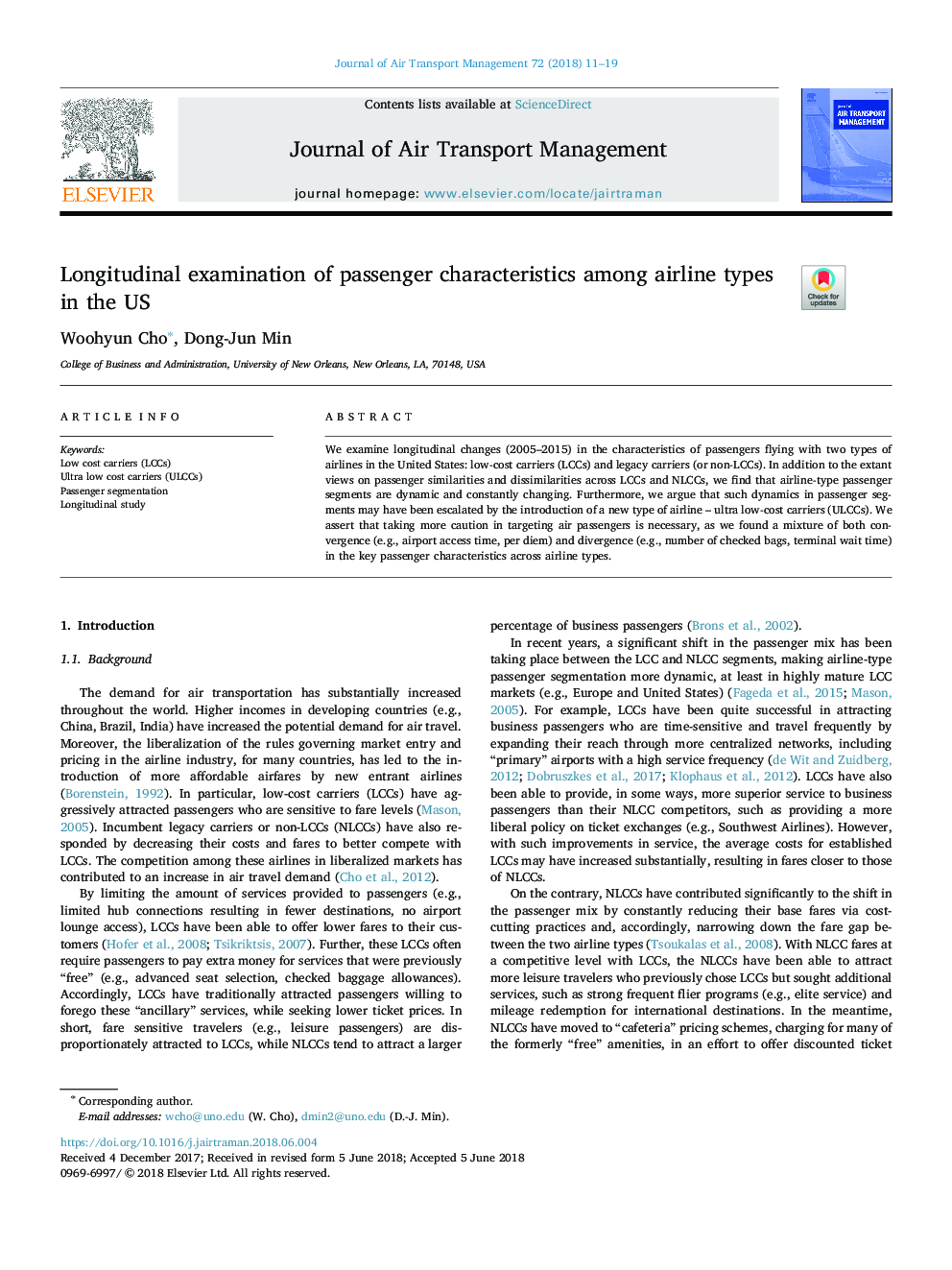| Article ID | Journal | Published Year | Pages | File Type |
|---|---|---|---|---|
| 7434942 | Journal of Air Transport Management | 2018 | 9 Pages |
Abstract
We examine longitudinal changes (2005-2015) in the characteristics of passengers flying with two types of airlines in the United States: low-cost carriers (LCCs) and legacy carriers (or non-LCCs). In addition to the extant views on passenger similarities and dissimilarities across LCCs and NLCCs, we find that airline-type passenger segments are dynamic and constantly changing. Furthermore, we argue that such dynamics in passenger segments may have been escalated by the introduction of a new type of airline - ultra low-cost carriers (ULCCs). We assert that taking more caution in targeting air passengers is necessary, as we found a mixture of both convergence (e.g., airport access time, per diem) and divergence (e.g., number of checked bags, terminal wait time) in the key passenger characteristics across airline types.
Keywords
Related Topics
Social Sciences and Humanities
Business, Management and Accounting
Strategy and Management
Authors
Woohyun Cho, Dong-Jun Min,
